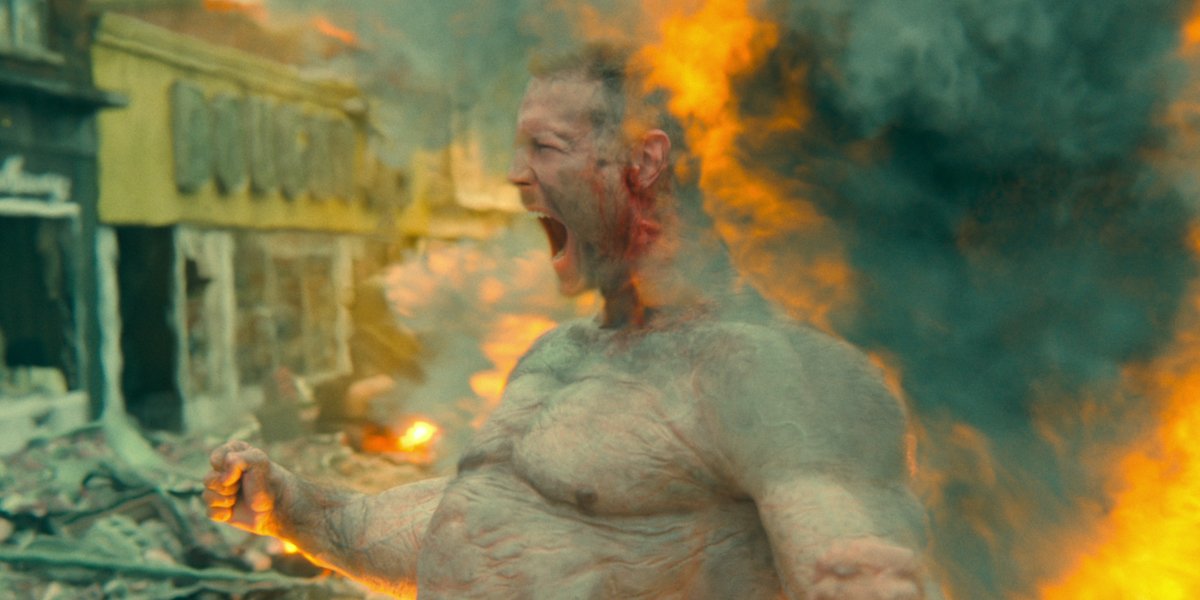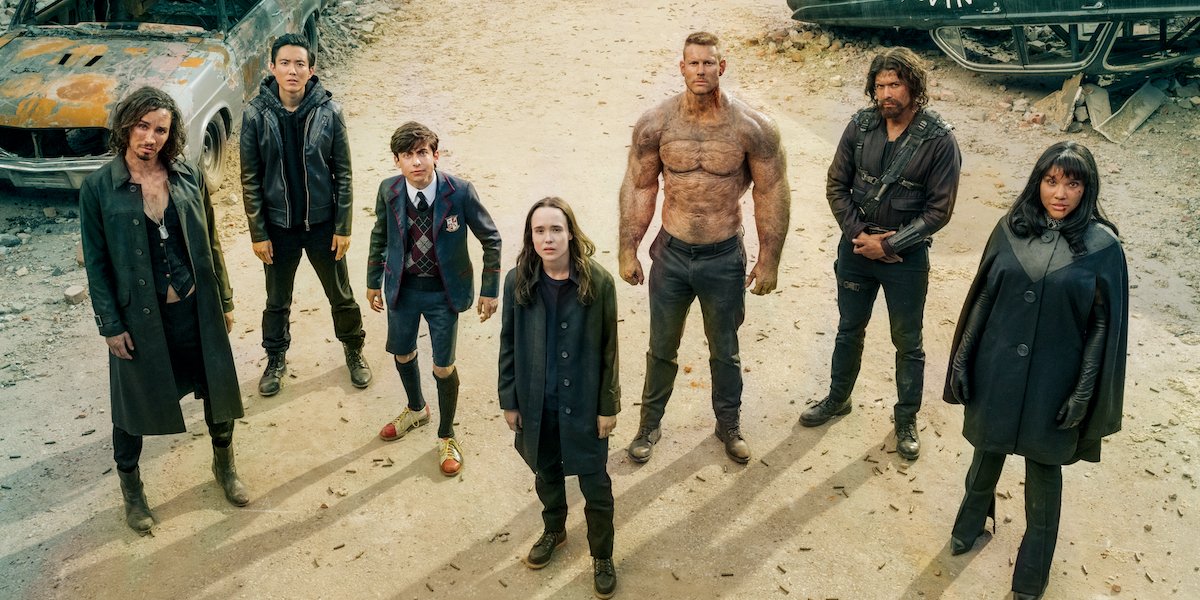Why Umbrella Academy's Episodes Are So Much Shorter In Season 2

Netflix's live-action take on The Umbrella Academy started off as one of the streaming service's most-binged TV series during its release window in early 2019, and Season 2 is poised to be just as popular, considering all the acclaim-heavy buzz that's come out about it. By and large, critics and fans are in agreement that The Umbrella Academy showrunner Steve Blackman and his creative team crafted a season that soars above the first in many different ways. Without a doubt, one of the reasons is that the episodes are shorter.
Though it might not be something viewers are consciously realizing as they watch, The Umbrella Academy's Season 2 installments end up topping out at around 45 minutes or so, while Season 1 episodes were all around 60 minutes. With a rare turn within a culture that lives and breathes by a "More Is Better" mantra, Steve Blackman and others made the pointed decision to cut back on episode lengths. He talked about that choice during the Umbrella Academy panel during this year's TCA summer press tour.
It was more challenging to write; it's shorter scripts. We were looking at our longer episodes from Season 1, and we felt at certain times, they were lagging. I think we are a very binged show; that's one of the things we found out about Season 1. And we wanted this to feel like a ten-hour movie, so you know, you just finish one and you go on to another. We realized around 45 minutes is the time period that feels pretty good for people viewing at home to just go into the next one. Beyond that, I feel, it gets a little longer, so that's the thing that pushed us and made us think, 'Let's shorten our show a little bit.'
How extremely rare it is for a TV showrunner's thoughts to echo the most common critiques of their own series. Seriously, though. Without even addressing deeper qualitative measures for the idea that the episodes felt overly long, it's safe to say that a lot of people across both sides of the "loved it" and "didn't love it" debate felt that Umbrella Academy's first season suffered from pacing issues caused by every episode getting those extended runtimes. So by all means, the show's creative team should get some kind of Outstanding Self-Awareness award for accepting those opinions and tackling them head-on.
It might not be such a big deal if The Umbrella Academy still came across as if episodes were lagging, but limiting the runtimes absolutely helped this wacky series to course-correct in a way that few shows have before. At least, in circumstances that didn't involve complete overhauls for showrunners, writers and/or cast members. The pacing is now as good as it gets, which is definitely saying something, since Season 2 is both a reined-in and hyper-expanded adaptation of the corresponding arc in the comic book series.

Season 2 picks up where Season 1 left off, with the super-powered Hargreeves siblings trying to avoid an apocalypse. Unfortunately, they find another one during their trip to Dallas in the early 1960s, and their second trip back unfortunately spreads them across different points in time. In order to save the world again, the team has to find one another while at the same time finding new parts of themselves during an era they only read about in books. Of course, problems ensue, and many characters experience major reveals, both about their pasts and their futures!
The Umbrella Academy Season 1 and Season 2 are currently available to stream on Netflix right now, so be sure to watch everything (maybe even more than once) if you want to let the streaming service's execs know you need Season 3 to happen. While waiting to hear more on that front, head to our 2020 Netflix schedule and our 2020 Fall TV guide to see what other shows are debuting in the near future.
Your Daily Blend of Entertainment News

Nick is a Cajun Country native and an Assistant Managing Editor with a focus on TV and features. His humble origin story with CinemaBlend began all the way back in the pre-streaming era, circa 2009, as a freelancing DVD reviewer and TV recapper. Nick leapfrogged over to the small screen to cover more and more television news and interviews, eventually taking over the section for the current era and covering topics like Yellowstone, The Walking Dead and horror. Born in Louisiana and currently living in Texas — Who Dat Nation over America’s Team all day, all night — Nick spent several years in the hospitality industry, and also worked as a 911 operator. If you ever happened to hear his music or read his comics/short stories, you have his sympathy.
